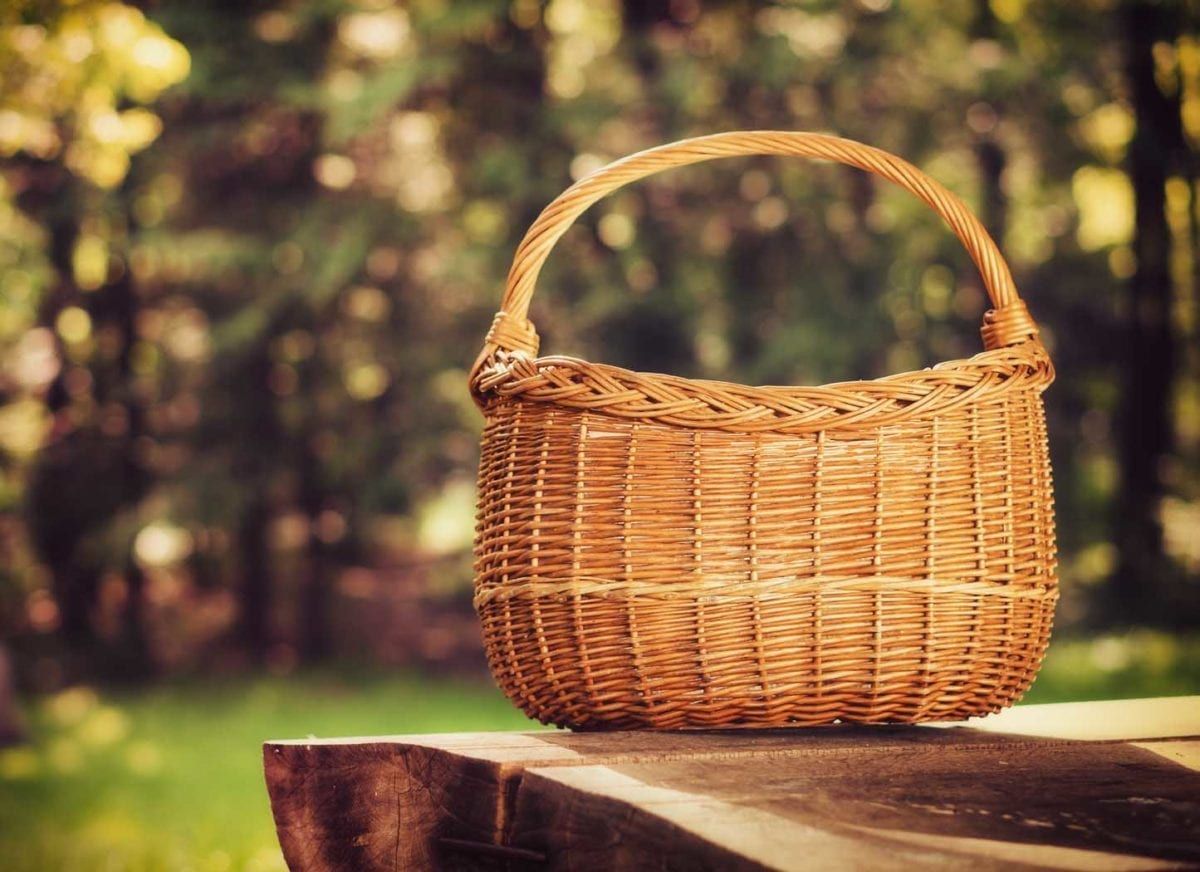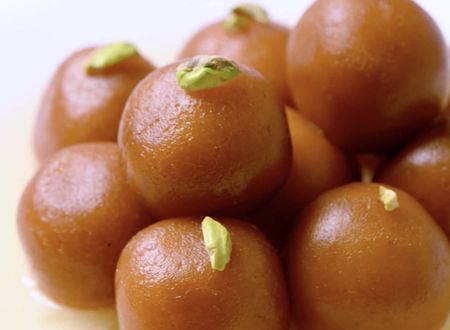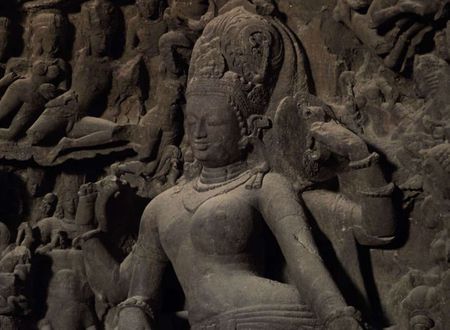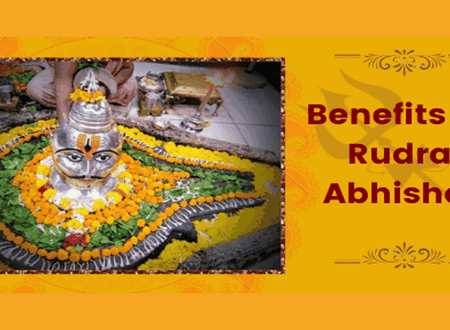Let me start with a Taoist story. Two men, a woodcutter and his apprentice, were passing through a jungle. They came across a huge banyan tree. Like some heavenly object, it stood majestically. Its trunk was wide, its boughs covered a large periphery, and a myriad of long aerial roots almost touched the ground; all in all, an ancient tree.
The young apprentice was very excited. “Look at this tree,” he said. “We need not go any further. It alone can give us the wood we need.”
The experienced woodcutter threw a cursory glance at the tree and did not even bother stopping. “This tree is too old and hard for my ax,” he replied. “The roots are useless and the branches are way too large.”
“It’s worthless. It has nothing for us, son,” he added, “but you know that is the secret of its long life.”
The world can’t affect you when you stand firmly rooted like the ancient banyan tree. Or, it leaves you alone when it doesn’t see value in you. All through one’s life, one is searching for things of value, of worth. First, we are conditioned to value certain things more than others. Then we chase them. The struggle in the process makes the attainment look worthwhile. And finally, we work hard to retain them. We like to preserve what we value.
Often, the more effort it takes to attain something, the more valuable it feels. It’s natural. Think about it. For example, after much toil, it takes someone a year to save a thousand dollars; its value is much greater to him compared with the one who saves that much in a day. The first one has paid a greater price to save those one thousand dollars. What and how you value something is often based on how you price it.
When you learn to value things that are usually ‘nothing’ to the world, you move closer to your inner source of strength. What is practically worthless to most are the prized possessions of a yogi. For example, everyone breathes. It’s not rocket science. Most take it for granted, but a yogi understands breath; he tames his breath. The world doesn’t think much of it, but it is a feat for the yogi.
The bliss is everlasting when it is not conditional, when it is not based on having or losing something. How can you be blissful without attainments? Well, that’s the whole of realization. That’s not all, though. Self-realized people have another important quality. It’s not about meditation or adhering to some tradition; these have barely any connection to the transcendental state. Once again, let me share another anecdote.
In Hinduism, cows are considered sacred and worthy of worship, predominantly because cows were an integral part of human life at one stage. Dairy products provided nutrition, dried cow dung was used as fuel, bulls tilled the farms, drew water from the wells, and transported people and goods. Cows were like pets and more. In our story, set in India, a pig and a cow were talking:
“Why do people worship you but detest me?” asked the pig. “After all, every single part of my body is used when I’m slaughtered. Shouldn’t I be the sacred one?”
The cow replied, “There’s a difference between you and me. I serve when I’m alive, whereas you do it after you’re dead.”
The second sign of an enlightened person is his willingness and capacity to serve selflessly. You may be a business person or a householder, a believer or an atheist, dressed in a robe or in a business suit, it’s immaterial. What matters is what you are doing for others. Religions, traditions, and labels are merely different lifestyles, different perspectives, at the most different belief systems, not much beyond that. Self-realization, however, is where conditioned beliefs die. This is where it all begins.
Someone offers you gold, you value it at nothing. Someone offers you garbage, you price it at nothing. Someone offers you nothing, you still value it because it is no longer about what you are offered or denied. This is the path of Samata, evenness.
When nothing is of value to you, everything becomes worthless, and when you learn to value ‘nothing’, everything life gives you feels priceless. Detachment and dispassion arise naturally. For, you only cling to what you think is worth something, anything. The degree of attachment is directly proportional to the value you place on the object of your attachment.
A self-realized person’s most valuable basket contains nothing. Therefore, what will such a person be attached to? Nothing.
What do you value in your life? People, stuff, everything, nothing?
Peace.
Swami
Editorial Note
Course
Art of Meditation
Free yourself from suffering and live life to the fullest. Learn the yogic technique of meditation in 4 days (and master it over a lifetime)
Selfless service is the hallmark of an enlightened person. Yet, most of us struggle with this on a regular basis. How can we make selflessness a part of our day-to-day living? Let’s take a closer look.
How do we practice selflessness in daily life?
If you wish to take on a cause to help others, some cause that makes your existence more useful, which in turn will make your life more fulfilling, developing a spiritual attitude towards life and our world is a must. Which essentially means that just because the other person is hurting me, or people disagree with me and don’t reciprocate, etc., are not good enough reasons for me to abandon patience, selflessness, and compassion. And sometimes, the only way of transcending your small personal issues is by devoting your energy to bigger ones. Read more here.
If selfless service is so valuable, why is prayer equally important?
Praying is your way of self-purification, of gaining inner strength, of becoming worthy of his grace, of connecting with him. It is one of the finest paths to experience him, to thank him, to be with him. It is the path of surrender, of decimating your ego, of putting the drop back in the ocean, of offering your presence, your potency, your knowledge, your very existence to the Supreme Soul. Praying is your method of connecting with him, and Grace is his method of connecting with you. Read more here.
If selfless service defines an enlightened person, why is meditation such an important part of the journey?
The sum total of all we have ever been over the billions of years, across myriad life-forms, is eternally present in us, with us, around us, at all times. It’s not just a matter of saying. If you continue to walk the path of meditation, one day, you’ll experience, know, and understand the truth in my words. But realization changes in you something irrevocably. You no longer just think about yourself.
No matter how much you may want to disregard, you feel obliged to live for the world around you. Naturally, you end up putting others’ interests before your own. In your selfless conduct, you discover your greatest happiness. Something miraculous happens to such a selfless person. The forces of the universe sit by your feet, waiting for your command. Read more here.
How does selflessness break the sense of self?
Service expects nothing in return other than the well-being of the one we are serving. True service requires absolute selflessness, something even beyond altruism, for, in service, the benchmark is not on whether you are acknowledged or special. Instead, your goal is to devote everything you’ve got to serve the cause that matters to you. And there lies the paradox, the more we devote ourselves wholeheartedly to our mission, without worrying about recognition, the greater success, and satisfaction we derive from walking the path. Read more here.
Why is it easier to be selfless in certain situations but not others?
A certain degree of suffering can bring people closer to each other. It quickly breaks the superficial layers of hypocrisy, it thaws artificiality. In suffering, either you are with the other person or you aren’t. When they are in pain, either you are helping them or you aren’t. Sometimes you feel indifferent or selfish or neutral, sometimes you don’t really feel anything when you see the other person in pain. You can’t choose your feelings, but, you can choose your behavior, you can act a certain way, in a compassionate way, in a more caring way. You benefit directly when you act selflessly.
Read more here.
Why is being selfless so important?
Our selfless acts add up to build our spiritual capital. To walk through heaven with humility or through hell with grace requires great spiritual wealth. Every selfless act, every gesture of gratitude, every soft word, every kind thought, they make up who we are. They create our world. Heaven or hell, it’s not just within us, it is us. Be kind. Read more here.
How do we move from practicing selflessness as a quality to becoming selflessness itself?
Quintessential Selflessness is when you do a karma with little or no expectation in return, maybe when you do it with no emotional or any other vested interest of your own. At any rate, my fulfillment in life is my personal responsibility. Who has ever discovered an ocean of happiness by looking up to the other person? Whatever you seek from others, learn to give it to yourself first. You always draw your energy and inspiration from whoever is the center of your life. In love, you become the one you love. If the center of your life is beauty, God, divinity, compassion, or any of these, you’ll become an embodiment of that. Read more here.
A GOOD STORY
There were four members in a household. Everybody, Somebody, Anybody and Nobody. A bill was overdue. Everybody thought Somebody would do it. Anybody could have done it but Nobody did it.
Don't leave empty-handed, consider contributing.It's a good thing to do today.









Comments & Discussion
19 COMMENTS
Please login to read members' comments and participate in the discussion.